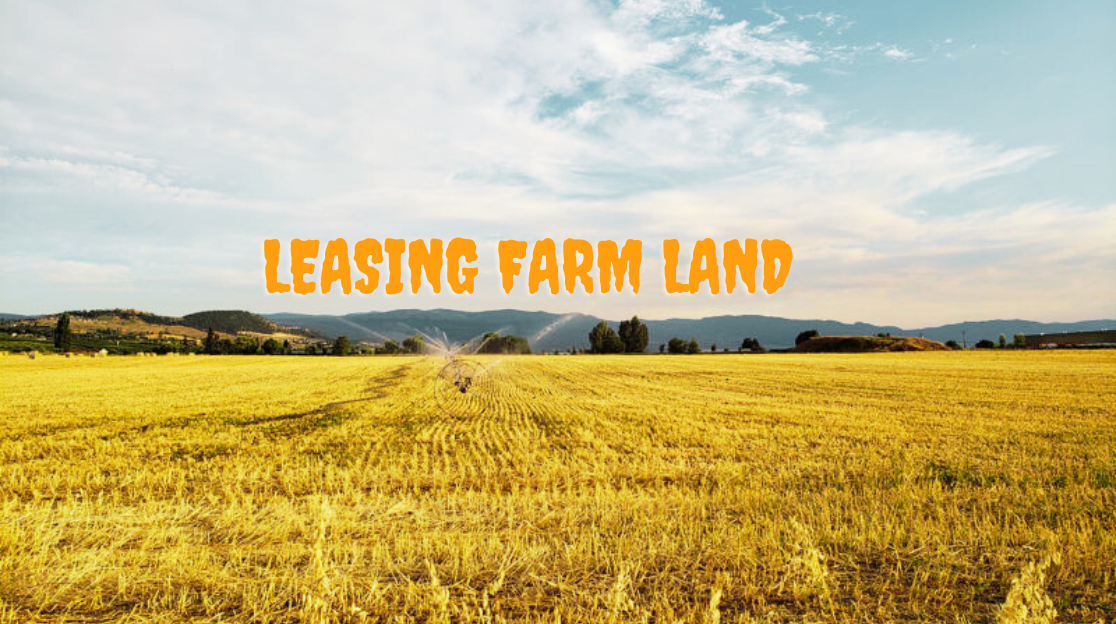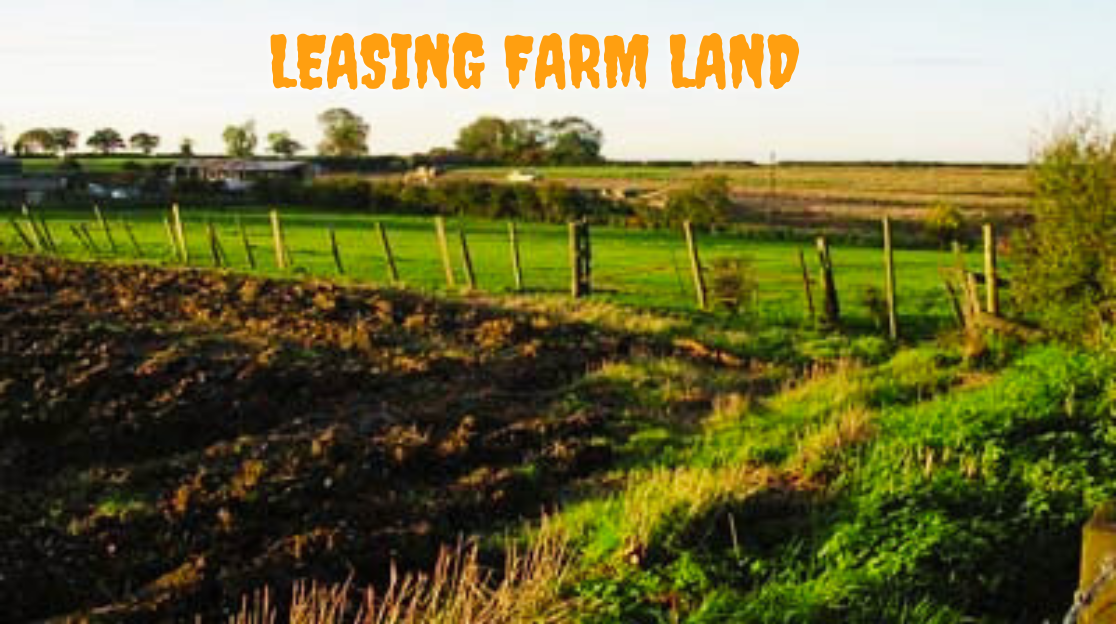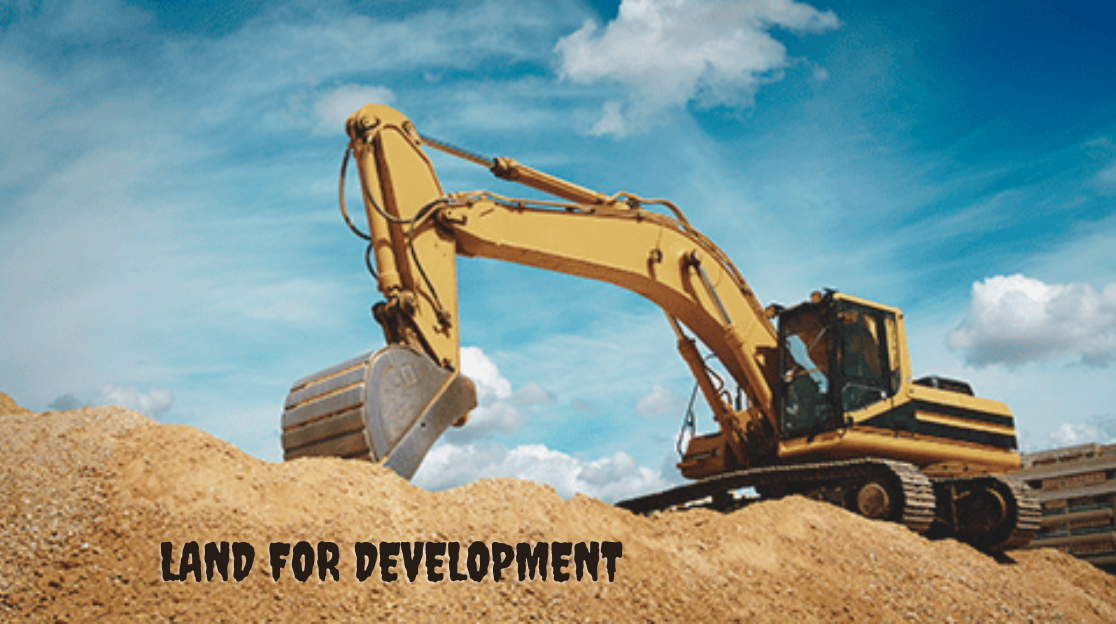Leasing farm land can be an excellent option for new farmers, entrepreneurs, or those looking to expand their agricultural operations without the substantial financial commitment of purchasing property. This guide will cover everything you need to know about leasing farm land, including benefits, types of land available, and key considerations for a successful leasing experience.
Why Lease Farm Land?
Leasing farm land provides a flexible way to enter the agricultural industry without the upfront costs associated with buying property. It allows aspiring farmers to test new crops, diversify their operations, or expand their current activities without long-term commitments.
Benefits of Leasing Over Buying
- Lower Initial Investment: Leasing typically requires less capital than purchasing, allowing you to allocate funds to equipment, seeds, or livestock.
- Flexibility: Leasing offers the ability to adapt your farming operations based on market demands or personal circumstances.
- Reduced Financial Risk: Leasing limits exposure to property depreciation and allows for easier exit strategies if your plans change.
Types of Farm Land Available for Lease
Crop Land
This type of land is specifically prepared for growing crops. It may be equipped with necessary infrastructure, such as irrigation systems and access to farming equipment.
Pasture Land
Pasture land is ideal for grazing livestock. If you plan to raise cattle, sheep, or other animals, look for properties with sufficient grass coverage and access to water.
Specialty Crop Land
Some farmers focus on growing specialty crops like fruits, vegetables, or herbs. If this is your area of interest, seek out land suitable for these specific needs, including climate and soil conditions.
Key Considerations When Leasing Farm Land
Location and Soil Quality
The land’s location significantly impacts its productivity. Investigate local climate, proximity to markets, and soil quality, as these factors affect crop yields and operational costs.
Water Access and Irrigation
Ensure the land has adequate water supply, whether from natural sources or irrigation systems. Access to water is crucial for crop production, especially during dry seasons.
Zoning and Land Use Restrictions
Check local zoning laws and land use restrictions to ensure you can use the land for your intended agricultural purposes. Some areas may have specific regulations that limit the type of farming activities allowed.
Understanding Lease Agreements
Types of Lease Agreements
- Cash Rent Leases: You pay a fixed amount annually for the land, providing predictable costs.
- Sharecropping: Rent is paid through a percentage of the crop yield, which can be beneficial if crop yields fluctuate.
Important Terms to Include in a Lease
Ensure the lease agreement includes essential details such as the lease duration, rental payment terms, responsibilities for maintenance, and conditions for terminating the lease.
How to Find Farm Land for Lease
Online Listings and Real Estate Platforms
Websites and platforms specializing in agricultural real estate can help you find available farm land for lease in your desired location.
Networking with Local Farmers
Connecting with local farmers and agricultural organizations can uncover leasing opportunities that may not be listed online. Attend community events or join farming groups to expand your network.
Evaluating Potential Lease Properties
Visiting the Land
Before committing, visit the property to assess its condition, layout, and suitability for your farming plans. Observe any existing infrastructure and how it aligns with your needs.
Soil Testing and Environmental Assessments
Conduct soil tests to determine fertility, pH levels, and any contaminants. Environmental assessments can reveal potential issues that may affect your farming operations.
Negotiating Lease Terms
Length of Lease
Negotiate a lease duration that suits your plans. Longer leases can provide stability, while shorter leases offer flexibility.
Rent and Payment Terms
Discuss rent amounts and payment schedules upfront. Make sure both parties understand when payments are due and how adjustments may be made over time.
Insurance and Liability Considerations
Types of Insurance Needed
Consider obtaining crop insurance, liability insurance, and property insurance to protect your investment and mitigate risks associated with farming operations.
Understanding Liability Issues
Familiarize yourself with liability issues related to leasing land, including potential accidents on the property. Ensure the lease agreement outlines liability responsibilities clearly.
Using the Land Effectively
Crop Rotation and Sustainable Practices
Implementing crop rotation and sustainable farming practices can enhance soil health, improve yields, and reduce reliance on chemical inputs.
Managing Resources Wisely
Efficient resource management—such as water conservation and equipment maintenance—can increase productivity and profitability on leased land.
Exit Strategies and Renewing Leases
Planning for Lease Expiration
As your lease approaches expiration, assess your plans for the future. Decide whether to renew, seek additional land, or alter your farming strategy.
Discussing Renewal Options
Communicate with the landowner about renewal options well in advance. Having a plan in place can facilitate a smoother transition for both parties.
Conclusion
Leasing farm land presents an excellent opportunity for aspiring and established farmers alike. With the right research and planning, you can find the perfect piece of land to support your agricultural ambitions. By understanding lease agreements, managing resources effectively, and evaluating potential properties carefully, you can set yourself up for success in the farming industry.
FAQs
What are the typical lease terms for farm land?
Lease terms can vary widely, but they often range from one to five years, with options for renewal.
How do I determine the fair rental value of farm land?
Research local rental rates, consider soil quality, and evaluate any existing infrastructure to gauge a fair rental value.
Can I make improvements to leased farm land?
Yes, but ensure any improvements are discussed and agreed upon in the lease agreement. Some leases may require that improvements revert to the landowner after the lease ends.
What should I do if the land I lease is damaged?
Contact your landlord immediately and consult your lease agreement for guidance on responsibilities and procedures for addressing damages.



